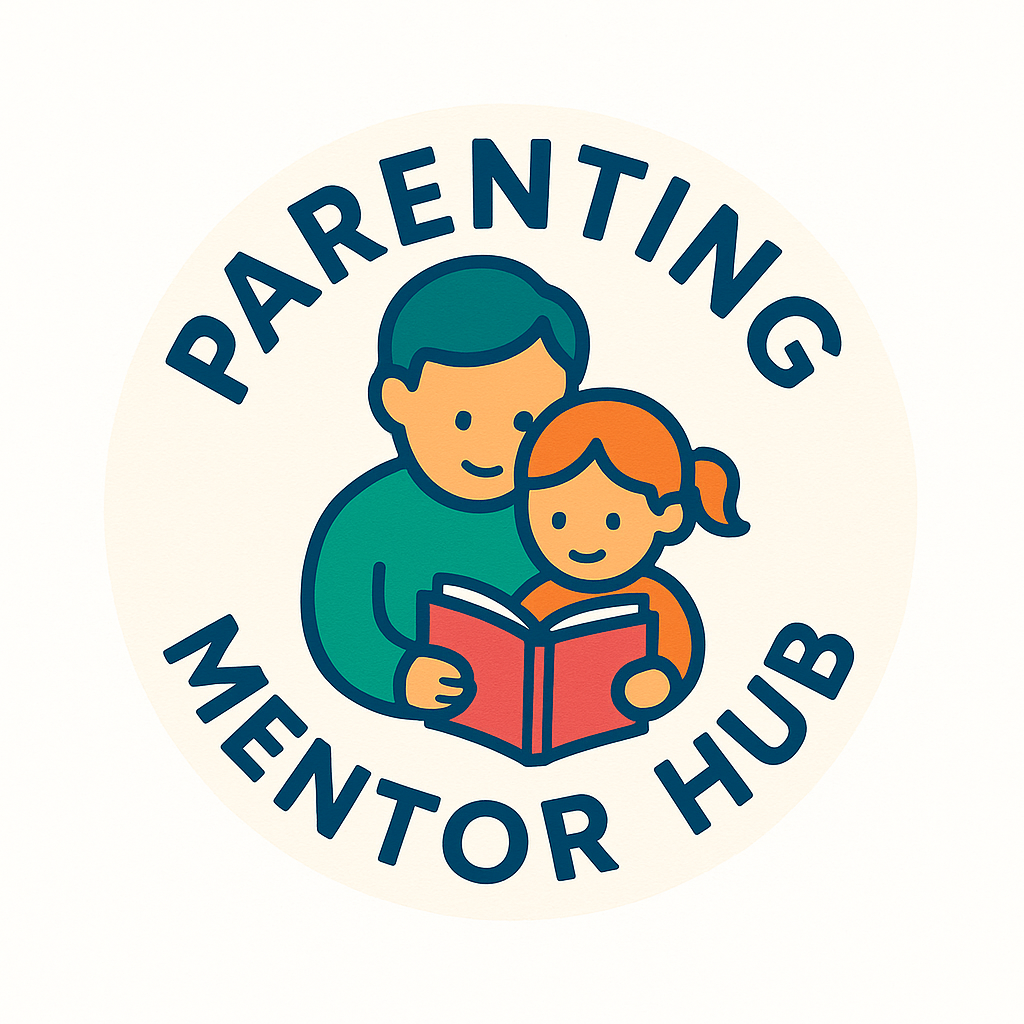
Stories don’t always have to be read from a page. In fact, some of the most magical storytelling moments happen when children close their eyes and let their imaginations run wild, guided only by a narrator’s voice weaving tales of adventure, mystery, and wonder.
If you’re a parent who sometimes feels a pang of guilt when you can’t manage “just one more story” at bedtime, or when exhaustion creeps in after a long day, you’re not alone. But here’s the reassuring truth: audiobooks aren’t a compromise or a shortcut – they’re a wonderful complement to your shared reading time, offering unique benefits that can enrich your child’s literary journey in ways you might not have considered.
The Practical Magic of Audiobooks
Convenience That Actually Works for Real Families
Let’s be honest about family life – it’s beautifully chaotic, and sometimes the traditional bedtime story routine simply doesn’t fit. Audiobooks step in as a gentle solution during those moments when life gets in the way of our best intentions.
Picture this: you’re preparing dinner whilst your little one sits at the kitchen table, completely absorbed in The BFG, Roald Dahl’s words brought to life by a skilled narrator. Or imagine those long car journeys where audiobooks transform potential meltdowns into peaceful listening sessions, with the whole family discovering new stories together. Even those inevitable waiting room visits – at the dentist, the doctor’s surgery, or the optician – become opportunities for quiet storytelling.
These aren’t moments of parental defeat; they’re examples of creative problem-solving that prioritises what truly matters: nurturing your child’s love of stories.
Bridging the Gap When You Can’t Be There
Sometimes circumstances mean we can’t physically be present for every bedtime story, and that’s perfectly normal. I think of a friend who’s a university lecturer, often working late into the evening. She began recording herself reading her daughter’s favourite stories, creating a library of “Mummy’s bedtime voices” that could comfort and entertain even when work kept her away. Her daughter treasured these recordings, playing them on repeat and feeling connected to her mother through the familiar sound of her voice.
Audiobooks serve a similar purpose, offering consistency and comfort when life’s demands pull us in different directions. They’re not replacing the irreplaceable bond of shared reading – they’re simply providing another avenue for story connection.
Creating Calm in a Busy World
Children today live in a world that’s often overstimulating and filled with flashing screens. Audiobooks offer something increasingly rare: an invitation to slow down, listen deeply, and let their minds wander.
Many parents discover that audiobooks naturally become part of calming routines. The gentle rhythm of a narrator’s voice can help children wind down after school, settle into quiet time on weekends, or ease into sleep at bedtime. Unlike the blue light of screens, audiobooks create an environment that supports relaxation whilst still engaging young minds with rich storytelling.
Unlocking Language and Literacy
Enriching Vocabulary and Story Understanding
When children listen to audiobooks, they encounter a richness of language that extends far beyond their current reading level. A seven-year-old who’s still mastering basic chapter books can absorb the complex vocabulary and sophisticated sentence structures of stories meant for older children, building their “story sense” – that intuitive understanding of how narratives work.
This exposure to advanced language patterns happens naturally and joyfully through listening, without the frustration that might arise from struggling with difficult text on the page. Children absorb new words in context, understanding meaning through tone and story progression rather than having to decode every syllable.
Learning the Music of Language
Professional narrators bring something special to storytelling that even the most enthusiastic parent might struggle to match consistently: expert phrasing, rhythm, and expression. I’m reminded of my granddaughter who fell in love with Enid Blyton’s Secret Seven series audiobooks. The narrator’s distinctive voices for each character and dramatic delivery of mysterious moments taught her about the theatrical elements of storytelling – how pace can build suspense, how tone conveys emotion, and how different characters can come alive through vocal expression. (She is now very active with university drama productions – who knows? – possibly because of that first love of audiobooks.
These lessons in the musicality of language serve children well, whether they’re reading aloud in class, telling their own stories, or simply developing an ear for the rhythm and flow of well-crafted stories.
Supporting Every Kind of Learner
Audiobooks are particularly valuable for children who struggle with traditional reading. Whether a child has dyslexia, attention difficulties, or simply finds reading challenging, audiobooks provide access to age-appropriate stories without the barrier of decoding text. This means they can engage with complex plots, develop literary comprehension skills, and maintain their love of stories whilst building their reading confidence through other methods.
For reluctant readers, audiobooks can be the bridge back to book love, reminding them why stories matter before they tackle the mechanical aspects of reading.
Feeding Imagination and Building Concentration
The Power of No Pictures
In our visually saturated world, audiobooks offer children something refreshingly different: the opportunity to create their own mental pictures. Without illustrations to guide their imagination, young listeners must conjure up characters, settings, and action sequences in their minds. This creative exercise strengthens visual thinking skills and personal interpretation. No two children will picture a dragon’s lair, a magical forest, or the hero’s best friend in exactly the same way.
This mental image-making is active work that engages children’s creativity. It’s their imagination in partnership with the storyteller’s words, creating something completely personal and vivid.
Developing Deep Listening Skills
In an age where many children struggle with short attention-spans, audiobooks provide practice in focused listening. Unlike the constant stimulation of many digital media, audiobooks require patience and concentration. Children learn to follow complex plots, remember character details, and stay focused on the stories.
These listening skills transfer beautifully to classroom learning. They help children become better students who can absorb information through listening and also maintain attention for extended periods.
Embracing the Digital Advantage
From Cassettes to Streaming: A World of Choice
Many of us remember the days of audiobook cassettes – often expensive, limited in selection, and prone to tangling in the player at crucial story moments. Today’s digital progress has transformed audiobook accessibility in many ways. Services like Audible offer vast libraries of children’s stories, whilst local library apps provide free access to thousands of titles.
This abundance means you can find audiobooks for every interest, age group, and attention span. From five-minute short stories for restless toddlers to epic fantasy series for devoted young listeners, there’s something to capture every child’s imagination.
Shared Discovery for the Whole Family
One unexpected joy of modern audiobooks is their ability to unite families around stories. Parents often find themselves genuinely interested in the tales their children are hearing, leading to rich conversations about characters, plot twists, and favourite moments. Some families make audiobooks part of their car journey tradition, with everyone from toddlers to teenagers engaged in the same story.
This shared experience creates opportunities for discussion that extend far beyond the listening time, helping children process stories, ask questions, and connect literature to their own lives.
Making Audiobooks Work for Your Family
Choosing the Right Narrator and Content
Not all audiobooks are created equal. Finding the right match for your child can make the difference between a beloved experience and an abandoned story. Pay attention to narrator quality – some children respond better to gentle, conversational voices, whilst others prefer more theatrical delivery. Many audiobook platforms offer sample clips, so you can preview the narrator’s style before committing to a full story.
Consider your child’s attention span and interests when selecting content. A restless four-year-old might thrive with shorter stories or collections of tales, whilst an eight-year-old ready for chapter books might enjoy serialised adventures they can return to night after night.
Keeping Sessions Appropriate
Younger children often do best with shorter listening sessions – 15 to 20 minutes can be perfect for keeping interest. As children grow, they’ll naturally choose longer stories and extended listening times. Trust your child’s cues about when they’ve had enough, and remember that building positive associations with audiobooks is more important than finishing every story.
Combining Audio with Physical Books
One of the most powerful approaches to audiobooks involves pairing them with physical copies of the same stories. Children can follow along with the text whilst listening, which is particularly valuable for developing readers. This dual approach helps children connect spoken words with written text, building crucial literacy bridges.
Alternatively, some children benefit from hearing a story first through audiobook, then reading the physical book. Having already absorbed the plot and context through listening, they can focus on decoding the text without struggling to understand the story simultaneously. This approach can transform challenging books into achievable reading experiences.
Creating Audiobook Routines
“Audiobooks work best when they become part of your family’s natural routines. Perhaps audiobooks become the soundtrack to weekend morning quiet time, or the accompaniment to long car journeys.
The beauty of audiobooks lies in their flexibility. They adapt to your family’s needs rather than demanding rigid scheduling around story time.
Embracing Story Magic in All Its Forms
Audiobooks aren’t cheating, cutting corners, or somehow less valuable than traditional reading. They’re simply another beautiful way to nurture your child’s relationship with stories.
Think of audiobooks as one more tool in your storytelling toolkit – alongside picture books, chapter books, and bedtime stories that you invent on the spot. Each method offers something special, and together they create a rich, varied literary landscape.
Tonight, why not try selecting an audiobook that matches your child’s current interests? Dim the lights, settle in together, and let professional storytellers weave their magic whilst you both discover new worlds through the power of voice. You may be surprised by how quickly audiobooks become a treasured part of your family’s story routine.
The stories are waiting – you just need to press play and let the magic begin.
If you’d like more ideas for bringing stories to life at home, you might enjoy my post on storytelling with children How Storytelling Builds Children’s Language Skills
